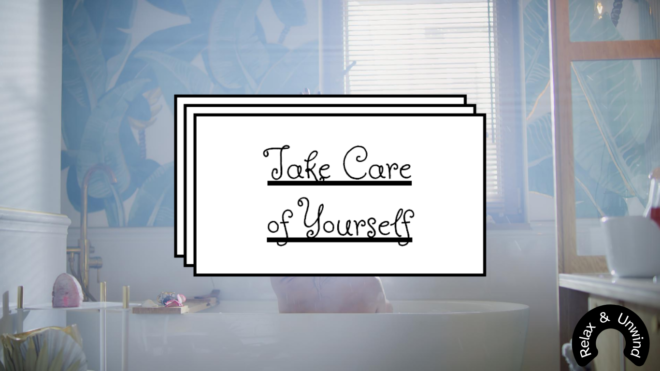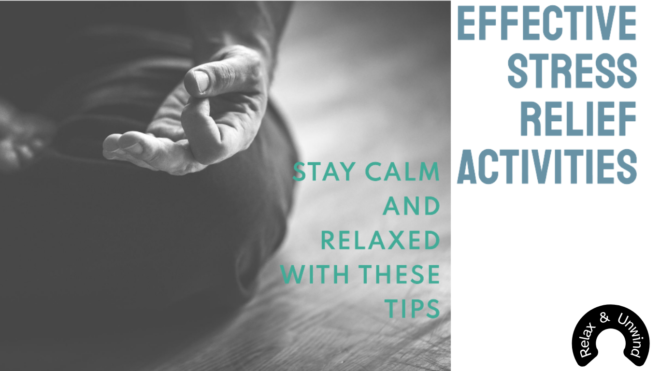Table of Contents
What is Self-Care
Self-care is a holistic and intentional practice that involves taking actions to maintain and improve your physical, mental, and emotional well-being. It encompasses a range of activities and habits designed to promote overall health and foster a positive relationship with oneself. Self-care routine is not indulgent or selfish; rather, it is a vital aspect of maintaining a balanced and fulfilling life.
Pillars of Self-Care:
The concept of the “5 Pillars of Self-Care” provides a framework for addressing different aspects of well-being. While variations may exist, these pillars typically encompass key areas that contribute to overall health and balance. Here are the commonly recognized 5 pillars of self-care:
1. Physical Self-Care:
Exercise and Movement: Engage in regular physical activity that you enjoy. This could be anything from walking and jogging to yoga or team sports.
Nutrition: Eat a balanced and nourishing diet. Prioritize whole foods, stay hydrated, and be mindful of your eating habits.
Rest and Sleep: Ensure you get adequate and quality sleep. Establish a consistent sleep routine to support your overall well-being.
2. Emotional Self-Care:
Emotional Awareness: Cultivate awareness of your emotions without judgment. Acknowledge and accept your feelings, and express them in healthy ways.
Self-Compassion: Treat yourself with kindness and understanding, especially during challenging times. Practice self-compassion and avoid self-criticism.
Joyful Activities: Engage in activities that bring you joy and fulfillment. This might include hobbies, spending time with loved ones, or pursuing creative interests.
3. Mental Self-Care:
Mindfulness and Meditation: Practice mindfulness to stay present and reduce stress. Incorporate meditation or deep-breathing exercises into your routine.
Continuous Learning: Stimulate your mind through continuous learning. This could involve reading, taking courses, or exploring new subjects that interest you.
Stress Management: Develop effective stress-management techniques. This may include time management, setting realistic goals, and finding healthy coping mechanisms.
4. Social Self-Care:
Connection: Foster meaningful connections with friends, family, and your community. Prioritize quality relationships and engage in social activities that bring joy.
Setting Boundaries: Establish and maintain healthy boundaries in your relationships. Learn to say no when needed to protect your well-being.
Support System: Cultivate a reliable support system. Reach out to others when you need assistance or a listening ear.
5. Spiritual Self-Care:
Meaning and Purpose: Reflect on your values, beliefs, and sense of purpose. Engage in activities that align with your spiritual or existential beliefs.
Mindfulness Practices: Incorporate mindfulness practices into your routine, such as meditation, prayer, or spending time in nature.
Cultivate Gratitude: Foster a sense of gratitude by acknowledging and appreciating the positive aspects of your life.
These pillars of self-care are interconnected and contribute to a holistic approach to well-being. Balancing these aspects in your life can lead to increased resilience, improved mental health, and a greater overall sense of fulfillment. It’s important to personalize your self-care routine, adapting it to your unique needs and preferences. Regular self-care practices contribute to a healthier and more balanced life.
Self-Care Routine
A self-care routine is a set of intentional and nurturing practices designed to prioritize and enhance your overall well-being. Establishing a consistent self-care routine can contribute to physical, mental, and emotional health. Here’s a guide to creating a comprehensive self-care routine:
Morning Mindfulness:
Start your day with a few moments of mindfulness, whether through meditation, deep breathing, or simply setting positive intentions for the day ahead.
Hydration:
Begin your morning with a glass of water to rehydrate your body after a night’s sleep. Staying hydrated is vital for overall health.
Nutritious Breakfast:
Fuel your body with a nutritious breakfast that includes a balance of protein, fiber, and healthy fats. This sets the tone for a day of sustained energy.
Skincare Ritual:
Establish a skincare routine that suits your skin type. Cleanse, moisturize, and protect your skin from the sun to promote skin health and boost confidence.
Physical Activity:
Incorporate physical activity into your day, whether it’s a morning workout, a brisk walk, or stretching exercises. Regular exercise contributes to both physical and mental well-being.
Work Breaks:
Take short breaks throughout your workday to stretch, move, or practice relaxation techniques. This helps maintain focus and prevents burnout.
Healthy Meals and Hydration:
Prioritize nourishing meals and stay hydrated throughout the day. Include a variety of fruits, vegetables, lean proteins, and whole grains in your diet.
Mindful Breathing:
Practice mindful breathing exercises to reduce stress and promote relaxation. Take a few minutes to focus on your breath, inhaling and exhaling deeply.
Afternoon Break:
Take a break in the afternoon to recharge. Step outside for fresh air, listen to calming music, or engage in a short mindfulness session.
Connect with Loved Ones:
Allocate time to connect with friends or family, whether through a phone call, video chat, or in-person interaction. Social connections are essential for well-being.
Creative Expression:
Engage in a creative activity that brings you joy, whether it’s writing, drawing, painting, or playing a musical instrument. Expressing yourself creatively can be therapeutic.
Evening Wind-Down:
Establish a wind-down routine in the evening to signal to your body that it’s time to relax. This may include reading, gentle stretching, or practicing relaxation techniques.
Quality Sleep:
Prioritize getting enough sleep each night. Create a calming bedtime routine and ensure your sleep environment is conducive to rest.
Gratitude Practice:
Reflect on the positive aspects of your day and practice gratitude. Consider keeping a gratitude journal to focus on the things you are thankful for.
Digital Detox:
Set boundaries for screen time, especially before bedtime. Unplug from electronic devices to promote better sleep and reduce mental stimulation.
Self-Reflection:
Take time for self-reflection. Assess your feelings, thoughts, and goals. This can foster personal growth and self-awareness.
Relaxation Techniques:
Incorporate relaxation techniques such as deep breathing, progressive muscle relaxation, or guided imagery into your routine to manage stress.
Weekend Self-Care Activities:
Plan intentional self-care activities on the weekends, whether it’s a nature walk, a hobby you enjoy, or a spa day at home.
Remember, a self-care routine is personal, and it’s essential to tailor it to your individual needs and preferences. Consistency is key, and finding activities that bring you joy and relaxation will contribute to a more balanced and fulfilling life.
Work on Understanding your Mental Health
Understanding your mental health is a crucial aspect of overall well-being. Here are practical steps to help you work on understanding and managing your mental health:
Self-Reflection: Take time for self-reflection. Consider your thoughts, emotions, and behaviors. Reflecting on your experiences can provide insights into patterns and triggers.
Educate Yourself: Learn about mental health conditions and common symptoms. Understanding the range of mental health issues helps demystify them and reduces stigma.
Seek Professional Guidance: If possible, consult with a mental health professional. A therapist or counselor can provide valuable insights and support in navigating your mental health journey.
Keep a Journal: Maintain a journal to record your thoughts and feelings. This can help you identify patterns, triggers, and moments of resilience. It’s a valuable tool for self-awareness.
Monitor Your Mood: Pay attention to your mood and energy levels throughout the day. Tracking your mood can help you identify patterns and factors influencing your mental well-being.
Identify Triggers: Identify situations, people, or events that trigger stress or negative emotions. Understanding your triggers allows you to develop coping strategies and proactive measures.
Establish a Support System: Cultivate a strong support system. Share your feelings with trusted friends or family members. Having a support network is crucial for managing mental health challenges.
Practice Self-Compassion: Be kind to yourself. Practice self-compassion by acknowledging that everyone faces challenges. Treat yourself with the same understanding and empathy you would offer to a friend.
Set Realistic Expectations: Assess and adjust your expectations. Set realistic and achievable goals, considering your current circumstances and mental health status.
Connect Physical and Mental Health: Recognize the connection between physical and mental health. Regular exercise, a balanced diet, and sufficient sleep contribute to overall well-being.
Know Your Limits: Understand your limits and recognize when you need to take breaks. Overextending yourself can contribute to stress and negatively impact your mental health.
Mindfulness and Relaxation Techniques: Practice mindfulness and relaxation techniques. Techniques like deep breathing, meditation, and progressive muscle relaxation can help manage stress and promote mental clarity.
Track Positive Moments: Acknowledge and celebrate positive moments in your life. Focusing on moments of joy and achievement can counterbalance challenging experiences.
Understand Your Coping Mechanisms: Identify your coping mechanisms. Recognize whether your coping strategies are helpful or detrimental, and explore healthier alternatives if needed.
Therapeutic Techniques: Explore therapeutic techniques that resonate with you. Cognitive-behavioral therapy (CBT), dialectical behavior therapy (DBT), and other therapeutic modalities can provide valuable tools for understanding and managing your mental health.
Normalize Seeking Help: Understand that seeking help is a sign of strength, not weakness. Normalize the idea of reaching out for support when needed, whether from friends, family, or mental health professionals.
Remember that mental health is a dynamic and individualized aspect of well-being. Developing a deeper understanding of your mental health involves ongoing self-awareness and a commitment to adopting positive strategies for coping and growth. If you are facing persistent challenges, seeking professional guidance is an important step toward enhanced mental well-being.
FAQs
How do I find time for self-care in a busy schedule?
Prioritize self-care by scheduling dedicated time in your calendar. Even small, intentional moments can contribute to your overall well-being.
Can self-care be financially sustainable?
Absolutely. Many self-care practices are affordable or free. Focus on activities that align with your budget, emphasizing simplicity and enjoyment.
Is self-care a selfish practice?
No, self-care is essential for maintaining overall well-being. When you prioritize your health and happiness, you become better equipped to contribute positively to others.
Can self-care help with stress management?
Yes, self-care is a powerful stress management tool. Engaging in activities that bring joy and relaxation can significantly reduce stress levels.









